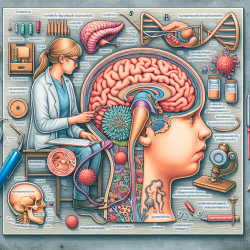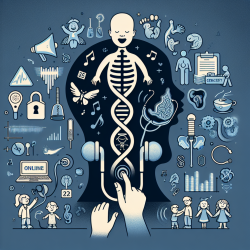Unlock the Secrets: How Medical Training Can Transform Care for Patients Who Use Substances
In the realm of healthcare, providing effective and compassionate care to patients who use substances (PWUS) is a critical yet often challenging task. The recent scoping review titled "Medical training to effectively support patients who use substances across practice settings: a scoping review of recommended competencies" sheds light on the essential competencies that medical professionals need to acquire to improve care for this population.
The Need for Competency-Based Medical Education
The review highlights a significant gap in medical education concerning the training of healthcare providers to effectively support PWUS. It emphasizes the importance of adopting a competency-based education (CBE) model, which focuses on the progression of competence through defined milestones. This approach ensures that medical professionals are equipped with the necessary knowledge, skills, and attitudes to provide patient-centered care.
Key Competencies for Supporting PWUS
The review identifies several key competencies that should be embedded in medical education programs:
- Knowledge Competencies: Understanding the neurophysiological changes caused by substances and the ability to evaluate risky behaviors are crucial. Medical education programs should include addiction specialists as educators to enhance these competencies.
- Skill Competencies: Screening and management of substance use disorders are commonly recommended skills. These competencies align with the Medical Expert role in the CanMEDS framework.
- Attitude Competencies: Identifying personal bias and establishing a patient-centered culture are essential. Training should focus on using non-stigmatizing language and involving patients in decision-making processes.
Addressing Stigmatization and Marginalization
The review underscores the pervasive issue of stigmatization and marginalization experienced by PWUS in healthcare settings. It recommends that medical education programs actively work to prevent stigmatization through the hidden curriculum and by hiring educators specialized in addiction. By fostering an environment of empathy, respect, and understanding, healthcare providers can improve the quality of care and reduce negative health outcomes for PWUS.
Implementing Change in Medical Education
To implement these competencies effectively, medical education programs must prioritize the integration of addiction medicine into the curriculum. This involves creating opportunities for medical students to learn from PWUS and gain insights into their experiences. Additionally, involving stakeholders, including patients, in the development of competencies can ensure that medical education meets the needs of the population it serves.
By embracing these recommended competencies, medical professionals can transform the care they provide to PWUS, leading to better health outcomes and improved patient satisfaction. As healthcare providers, it is our responsibility to continuously enhance our skills and knowledge to support all patients effectively.
To read the original research paper, please follow this link: Medical training to effectively support patients who use substances across practice settings: a scoping review of recommended competencies.










